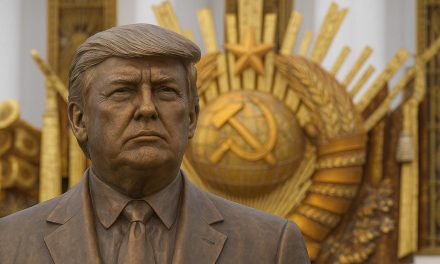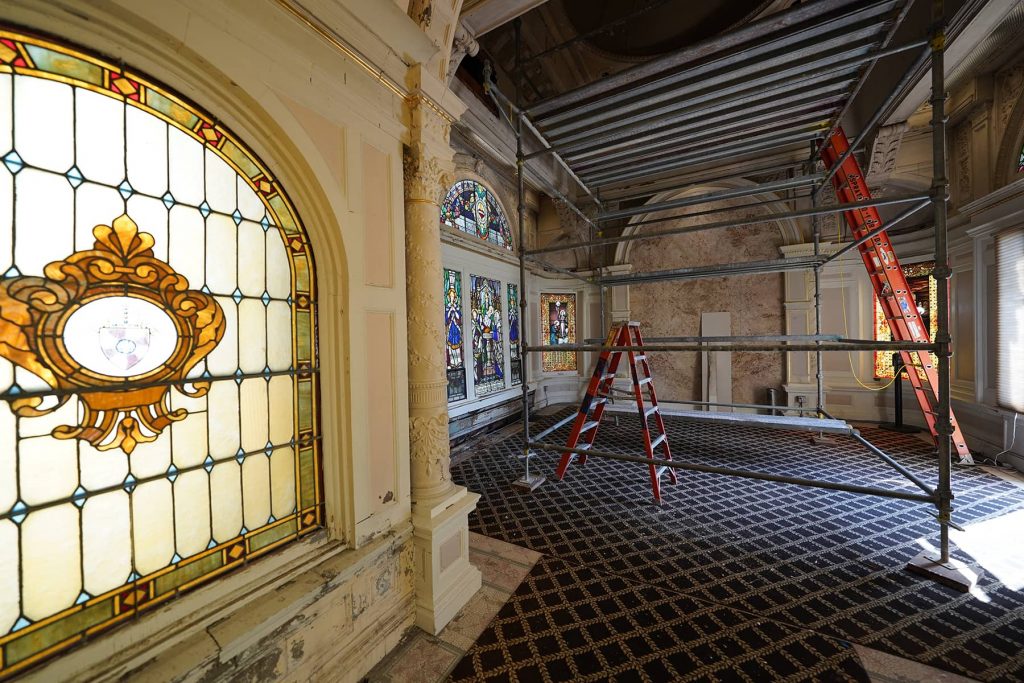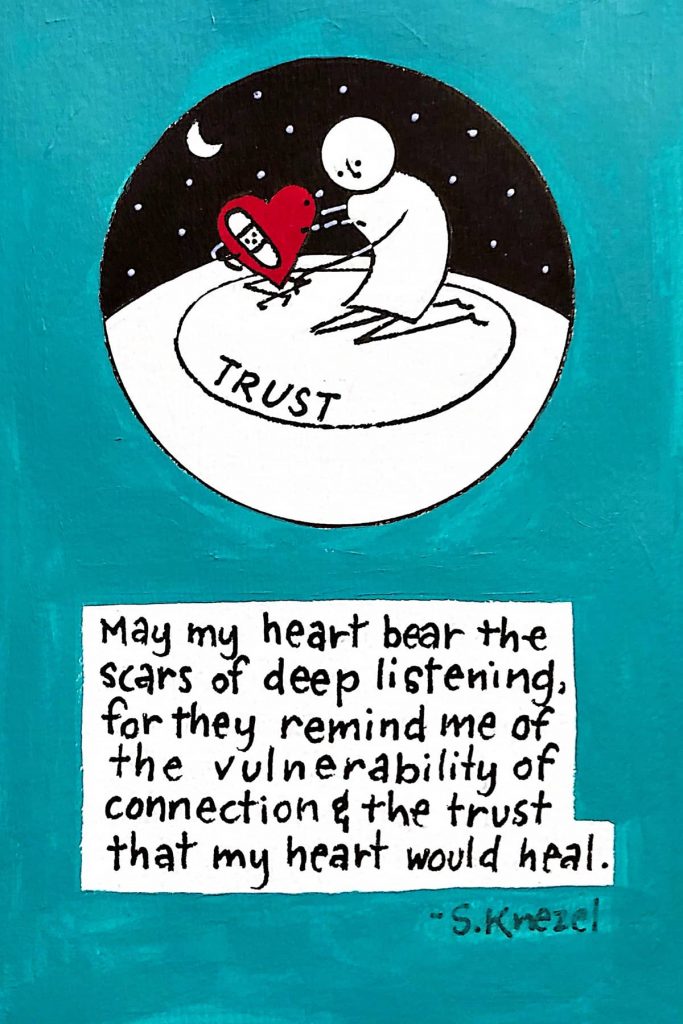
This explainer series, Catholic Doctrine on Immigration, explores how the teaching of faith and Scriptures intersect with immigration policy, focusing on the role of Milwaukee’s Catholic Church in responding to enforcement, labor dynamics, and family separation. Through detailed reporting across legal, economic, and pastoral contexts by Milwaukee Independent staff members, the series examines how Church teaching shapes institutional action and informs the Church’s engagement on national immigration issues. mkeind.com/catholicimmigration
In the United States, debates about immigration often unfold through a fog of misinformation. Misleading claims dominate public discourse, while policy decisions are shaped by political posturing rather than empirical reality.
In this climate, the Catholic Church offers not only a counter-narrative, but also a moral framework rooted in both doctrine and data. It confronts myths with clarity to reassert the dignity of all human life.
The Archdiocese of Milwaukee has taken a prominent role in this effort, anchoring its approach in both spiritual tradition and statistical evidence. At the center is a faith-driven commitment to truth.
Welcoming the stranger is not merely a charitable act but a moral obligation. The Church does not approach immigration through partisan lines, but through a deep concern for justice, especially where lies and prejudice threaten vulnerable lives.
One of the most pervasive and damaging myths in circulation in America is the claim that undocumented immigrants commit crimes at higher rates than U.S.-born citizens. This belief, amplified by political rhetoric and sensational media coverage, has fueled punitive policies and community fear.
Yet the data consistently show the opposite. Immigrants — both legal and undocumented — are less likely to commit violent, property, or drug-related offenses. Church teaching, grounded in the dignity of every person, challenges the assumption that someone’s legal status correlates with criminal behavior. The moral error is compounded when this myth is used to justify blanket policies of surveillance, detention, or exclusion.
Another popular falsehood asserts that immigrants drain public resources without contributing to the system. Here again, the evidence dismantles the claim. Undocumented immigrants contribute billions annually in state, local, and federal taxes. Through payroll deductions and consumer spending, they help fund public programs that they are often barred from accessing.
Far from being a financial burden, immigrant labor and tax contributions are critical to the functioning of everything from Social Security to public infrastructure. Catholic teaching frames this not merely as an economic issue, but a matter of justice. It is a call to recognize the dignity of labor regardless of legal classification.
The myth that immigrants bring fentanyl into the country is another frequently weaponized narrative. While the opioid crisis is real and devastating, the claim that undocumented migrants are the primary traffickers of fentanyl is unfounded.
U.S. Government data confirm that the vast majority of fentanyl seizures occur at legal ports of entry and are overwhelmingly carried out by U.S. citizens. The Church calls for serious, evidence-based responses to drug trafficking. But it categorically rejects scapegoating entire communities based on nationality or status.
Misusing fear to justify xenophobia not only distorts the issue but risks turning public health crises into tools of political manipulation. These are not just analytical failures. They are moral failures. In each of these myths, the truth is not just obscured. The truth is willfully rejected in favor of narratives that dehumanize. The Church’s response is to reorient the conversation toward human dignity, communal responsibility, and faith in action.
The Church’s effort to dispel these myths is not limited to doctrinal reflection. In dioceses across the country — including Milwaukee — Catholic institutions have engaged in active education campaigns that pair faith-based messaging with factual literacy. These initiatives are not abstract. They are designed to intervene in real conversations, in parishes and public forums alike, where misinformation spreads unchecked.
This work includes public presentations, fact sheets, workshops, and digital resources that equip parishioners with the tools to confront false narratives. But the ultimate goal is not to win arguments. It is to build a culture in which truth, empathy, and justice guide dialogue. It is a culture that refuses to let fear dictate policy or reduce human beings to statistics.
Another widespread misconception centers around the notion that immigrants refuse to follow legal pathways and should simply “wait their turn.” From a distance, this framing sounds reasonable. But as the Church consistently points out, the legal immigration system in the United States is deeply flawed and structurally exclusionary.
For the vast majority of low-income migrants, especially those fleeing violence or economic collapse, no viable legal pathway exists. Decades-old quotas, limited visa categories, and multiyear backlogs effectively bar lawful entry for millions. The Church challenges the simplistic rhetoric of “just come legally” by exposing the practical impossibility of that demand.
This is more than a procedural critique. It is a moral indictment of systems that demand compliance with laws that offer no access. To criminalize the desperate when the law provides no realistic alternative is to abdicate moral responsibility. The Church calls not just for reform, but for honesty, and an acknowledgment that the current system is broken and that its dysfunction punishes the vulnerable by design.
In this context, Catholic social teaching serves as both a corrective and a compass. It centers the conversation not on border lines or bureaucratic categories, but on relationships, obligations, and the inherent worth of each person. The faith tradition insists that policy debates cannot be separated from questions of justice, and that political convenience is never a substitute for moral clarity.
The work of dismantling false narratives is ongoing. It involves confronting deeply embedded prejudices, resisting the pull of dehumanizing language, and refusing to reduce complex lives to fear-driven talking points. But for the Church, this is not an optional task. It is a core expression of faith. It stands with the stranger, to defend truth, and to insist on the full humanity of those most at risk of being erased by political noise.
In the end, the Church’s challenge to immigration myths is not just about facts. It is about fidelity to Scripture, to conscience, and to the moral imperative to speak the truth in a time of distortion.














